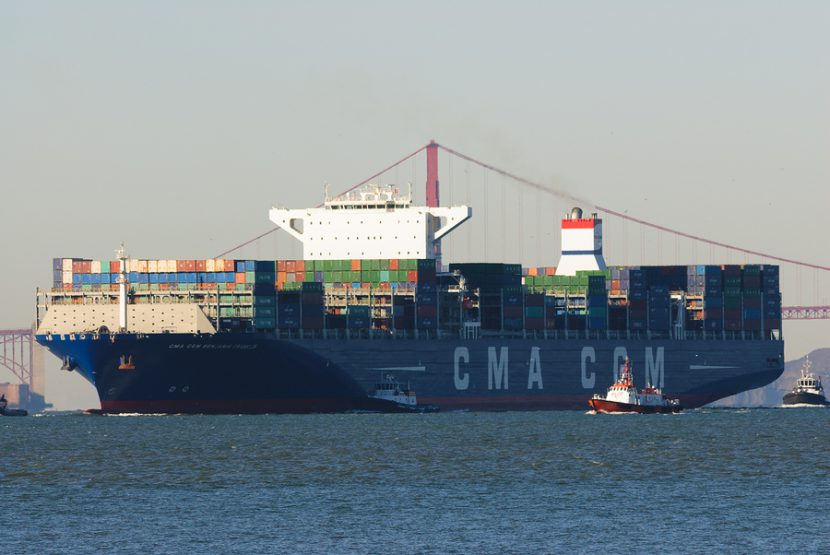Foreign Supplier Verification Programs (FSVP) for Importers
Food Safety Modernisation Act (FSMA):
Foreign Supplier Verification Programs (FSVP) for Importers of Food for Humans and Animals
As part of the US Food Safety Modernization Act (FSMA), the US Food and Drug Administration (FDA) has issued several rules to further clarify the requirements of the regulations. This is one of these rules, which was developed after extensive consultation with numerous stakeholders.
Scope:
The rule governing Foreign Supplier Verification Programs (FSVP) for Importers of Food for Humans and Animals applies to importers, defined for this purpose as the US owner or consignee of a food offered for import into the United States. If there is no such entity, the importer is considered to be the US agency or representative of the foreign owner or consignee at the time of entry, as confirmed in a signed statement of consent.
The FSMA compliance goal is to ensure that foods from foreign suppliers are as safe as those covered domestically under the Produce and the Preventive Controls rules. Therefore, for each food and each supplier of a food product, should they use several suppliers, the FSVP requires importers to:
- Determine known or reasonably foreseeable hazards for each food
- Evaluate the risk posed by the food, based on both the hazard analysis and the foreign supplier’s performance
- Use the above to approve suppliers and determine appropriate verification activities
- Conduct supplier verification activities
- Re-evaluate risk assessment and supplier verification every three years
- Conduct corrective actions as necessary
All of these must be based on the proper documentation and written plans.
Importers that are also manufacturers/processors may be deemed to be in compliance with most FSVP requirements if:
- they are in compliance with the supply-chain program requirements or they implement preventive controls in compliance with the Preventive Controls Rule
- for the food in question, preventive controls are not required due to certain circumstances: for example, coffee beans which could not be consumed without application of a preventive control
- they receive written assurance that a subsequent entity in the distribution chain will process the food in some way that will mitigate the hazard. However, importers must disclose in documents accompanying the food that it has not already been processed to control the identified hazard.
Hazard Analysis:
A hazard is defined as something that is reasonably likely to cause illness or injury. Each food must be assessed for likely and foreseeable hazards including biological (e.g. microbes), chemical (e.g. pesticide residues) and physical dangers (e.g. foreign objects like glass).
Hazards may occur naturally, be unintentionally introduced, or be intentionally introduced for many reasons including economic gain (e.g. substituting a less costly ingredient). The analysis must assess the probability of these hazards occurring in the absence of any controls and the likely severity of any resulting illness or injury.
Importers can rely on qualified agents to conduct the hazard analysis but they must review and retain the relevant documentation.
The evaluation must consider many factors, including:
- The formulation of the food
- The condition, function and design of the establishment, and the equipment therein, of a typical entity that produces the food
- Raw materials and other ingredients
- Transportation practices
- Harvesting, raising, manufacturing, processing and packing procedures
- Packaging and labeling activities
- Storage and distribution
- Intended or reasonably foreseeable use
- Sanitation, including employee hygiene.
Evaluation:
As already noted above, under FSMA’s Foreign Supplier Verification Program, the importer must evaluate both the food risk and the supplier’s performance. If an entity in the supply chain will be using a process that will reduce a specific risk, the importer must assess that entity’s procedures and practices. The importer is also required to review the supplier’s past performance in terms of both food safety and responsiveness in correcting any problems. And, finally, the imported food must meet the applicable FDA food safety requirements.
Supplier Verification:
Based on the above evaluations, the importer must create and implement written procedures to ensure that it only imports from approved foreign suppliers and it must conduct appropriate supplier verification activities on an on-going basis.
Importers have several options to tailor supplier verification activities to unique food risks and supplier characteristics, including:
- Annual on-site audits of the supplier’s facility. This is generally required where a possible “Serious Adverse Health Consequences or Death to Humans or Animals,” or SAHCODHA hazard, is identified. However, the importer can choose another means of verification provided that they document that the alternate choice is appropriate and provides adequate assurances that the supplier is producing the food in accordance with applicable US safety standards.
- Sampling and testing
- Reviewing the supplier’s relevant food safety records.
Corrective Actions:
It is up to the importer to ensure that immediate and appropriate corrective actions are taken should something go wrong. As well as the risks noted for evaluation above, this also includes mislabelling with regard to allergens and adulteration.
The corrective actions will be dictated by the circumstances but the most common is to stop importing from that supplier until the necessary corrective actions are taken and documented to be effective.
Exemptions and Modified Standards:
Modified standards apply to certain foods imported from a country whose food safety standards have been deemed equivalent to the US.
The exemptions for dietary supplements vary depending on whether the imported food is a finished product or an ingredient/component for further processing. Many dietary supplements are already covered under their own Current Good Manufacturing Practices (CGMP) regulations and so importers who can verify that they are meeting these would not be required to meet FSVP requirements as well. If the imported supplement is not already covered by these regulations, the FSVP requirements would apply but the verification process would focus on meeting the CGMP regulations.
Very small importers (less than $1 million in sales of human food or $2.5 million of animal food) and importers of food from certain small suppliers (see below) must meet modified FSVP requirements. For example, certain importers could verify their foreign suppliers by obtaining written assurances from their supplier instead of conducting their own hazard analysis.
Some of the small foreign suppliers noted above include:
- Facilities that qualify for modified requirements under the preventive controls rules
- Farms not under the Produce Safety Rule because they average $25,000 or less in annual produce sales or because they meet requirements for a qualified exemption
- Shell egg producers with fewer than 3,000 laying hens
And finally, certain categories of imported food are not covered by FSVP. These include:
- Juice, fish, and fishery products (and certain ingredients for use in these products) that comply with the applicable HACCP regulations
- Food for research or evaluation
- Food for personal consumption
- Alcoholic beverages and certain ingredients for use in alcoholic beverages
- Food that is imported for processing and future export
- Low-acid canned foods (LACF), such as canned vegetables, as well as certain ingredients for use therein, but only with respect to microbiological hazards covered by other regulations.
- Certain meat, poultry and egg products regulated by the US Department of Agriculture at the time of importation
Compliance Dates
For full FSMA compliance, Importers must comply within 18 months after publication of the rule, which was on November 27, 2015.
However, if their supplier is subject to the Preventive Controls or Produce Safety Rules, they are required to comply six months after the foreign supplier is required to meet the relevant regulations.
If an importer is itself a manufacturer or processor subject to the supply-chain program provisions in the preventive controls regulations, the date established in the Preventive Controls Rules apply.

-
 FeaturedRisk management
The Cost of a Breach: What a Cyberattack Could Mean for Food Safety Recalls
FeaturedRisk management
The Cost of a Breach: What a Cyberattack Could Mean for Food Safety Recalls
-
 FeaturedRisk management
Securing the Food Chain: How ISO/IEC 27001 Strengthens Cybersecurity
FeaturedRisk management
Securing the Food Chain: How ISO/IEC 27001 Strengthens Cybersecurity
-
 FeaturedRisk management
Revolutionizing Food Safety Training: Breaking Out of the “Check-the-Box” Mentality
FeaturedRisk management
Revolutionizing Food Safety Training: Breaking Out of the “Check-the-Box” Mentality
-
 GFSI Standards
GFSI 2025: Building Trust, Tech-Forward Solutions, and Global Unity in Food Safety
GFSI Standards
GFSI 2025: Building Trust, Tech-Forward Solutions, and Global Unity in Food Safety
-
 FeaturedFood Safety
Integrated Pest Management: Strategies to Protect Your Brand’s Reputation
FeaturedFood Safety
Integrated Pest Management: Strategies to Protect Your Brand’s Reputation
-
 FeaturedFood Safety Culture & Training
No Open Door Policy: Challenges That Impact Pest Control in Food Processing Plants
FeaturedFood Safety Culture & Training
No Open Door Policy: Challenges That Impact Pest Control in Food Processing Plants




